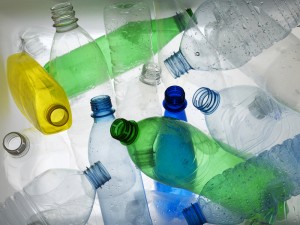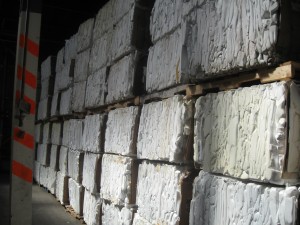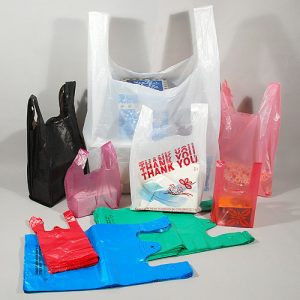Polymers
To create polymers, petroleum and other products are heated under controlled conditions and broken down into smaller molecules called monomers. These monomers are the building blocks for polymers. Different combinations of monomers produce plastic resins with different characteristics, such as strength or molding capability.
A thermoplastic is a polymer in which the molecules are held together by weak bonds, creating plastics that soften when exposed to heat and return to their original condition at room temperature. Thermoplastics can easily be shaped and molded into products such as milk jugs, floor coverings, credit cards, and carpet fibers.
Plastics can be divided into two major categories: thermosets and thermoplastics. A thermoset is a polymer that solidifies or “sets” irreversibly when heated. They are useful for their durability and strength and are therefore used primarily in automobiles and construction applications. Other uses are adhesives, inks, and coatings.
Plastic resins are processed in several ways, including extrusion, injection molding, blow molding, and rotational molding. All of these processes involve using heat and/or pressure to form plastic resin into useful products, such as containers or plastic film.
Plastics are polymers. The most simple definition of a polymer is something made up of many units. Polymers are chains of molecules. Each link of the chain is usually made of carbon, hydrogen, oxygen, and/or silicon. To make the chain, many links, are hooked, or polymerized, together.





Reviews
There are no reviews yet.